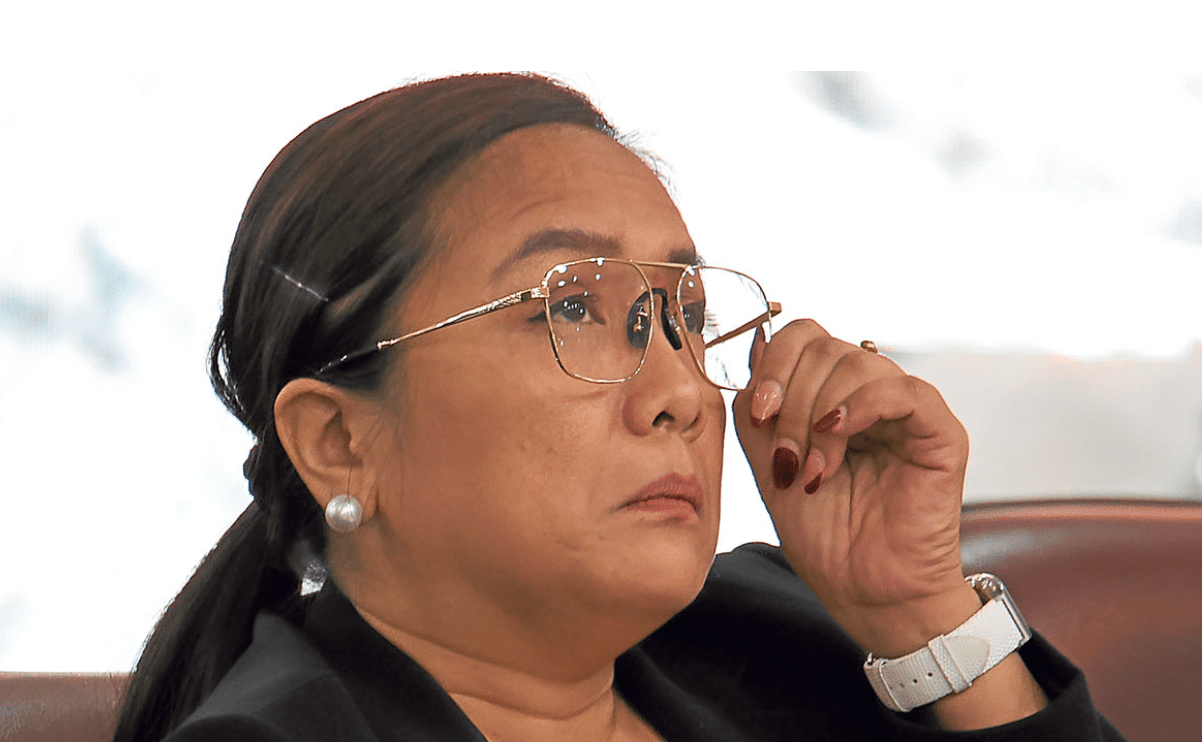Will the Trump administration grant Royina Garma asylum?

Former Philippine Charity Sweepstakes Office General Manager Royina Garma | INQUIRER FILE PHOTO
 In a move that has surprised many, Royina “Roying” Garma – former police general, ex-Cebu Port Authority head and once a key Duterte ally – has reportedly sought asylum in the United States.
In a move that has surprised many, Royina “Roying” Garma – former police general, ex-Cebu Port Authority head and once a key Duterte ally – has reportedly sought asylum in the United States.
Her application represents more than just a personal appeal for protection – it is a crucible, in which the United States’ asylum framework – under the harsh light of the Trump administration’s revived hardline immigration policies – is once again being tested.
This development comes just months after the Inquirer reported that the Philippine Department of Foreign Affairs (DFA) confirmed Garma and her daughter, Angelica Vilela, were arrested and detained by United States Customs and Border Protection in San Francisco, California.
According to DFA spokesperson Maria Teresita Daza, the Philippine Consulate General in San Francisco had been “continuously coordinating” with US authorities on the case.
Grounds for asylum: A case rooted in political persecution
Under US asylum law (8 U.S.C. § 1158), an applicant must demonstrate a well-founded fear of persecution on account of race, religion, nationality, membership in a particular social group (PSG) or political opinion. Royina Garma’s case clearly falls under the ground of persecution due to political opinion and, possibly, also membership in a particular social group – that is, former high-ranking government officials associated with the Duterte administration, who are now being politically targeted by the current administration.
Garma, once closely aligned with former President Rodrigo Roa Duterte and instrumental in implementing his popular and controversial war on drugs as Davao police chief, has reportedly become the subject of retaliatory threats, surveillance and potential legal persecution.
Her sudden and unexplained disappearance from the Philippines, followed by credible reports of her applying for asylum in the United States, suggests the presence of credible fear – a central requirement in asylum adjudication.
The nexus: from government loyalist to political target
The legal challenge in any asylum case lies in establishing the nexus – the connection between the feared harm and a protected ground. In Garma’s case, that nexus is unmistakable. Her loyalty to Duterte, her vocal criticism of political shifts under the Marcos Jr. presidency and her insider knowledge of state operations have reportedly made her a person of interest not only to political opponents but also to institutional actors like the Department of Justice and the Commission on Human Rights.
This change in political climate – what scholars call regime persecution – has long been recognized in asylum law as a legitimate basis for protection (e.g., INS v. Elias-Zacarias, 502 U.S. 478 (1992)). Garma’s case closely parallels those of political dissidents and former state agents in regimes that become targets after power transitions.
Particular Social Group (PSG) analysis
Aside from political opinion, Garma may qualify under PSG jurisprudence as a former senior law enforcement official in a prior administration. US immigration courts have recognized that former high-ranking police or military officers in politically volatile countries may form a particular social group, especially when the current government seeks to silence or punish them for their past service (see Matter of A-R-C-G-, 26 I&N Dec. 388 (BIA 2014)).
Thus, the combination of her identity and status – female, outspoken, a former general and Duterte’s known ally – places her within a distinct and identifiable PSG now being targeted by a hostile successor regime.
Trump administration challenges: A race against time
Unfortunately, Royina Garma’s asylum plea comes at a precarious time. The Trump administration – now returned to power – has reimposed many of its prior restrictions on asylum claims. Among them:
- Third-country transit bars: Although previously struck down, these rules are being revived and could be used to disqualify applicants who passed through other nations before entering the US.
- Heightened credibility standards: Asylum officers and judges are under pressure to deny claims that do not present immediate, corroborated physical danger.
- Expedited removal and detention policies: Claimants like Garma were detained upon entry and fast-tracked for removal before fully arguing their case unless represented by experienced counsel.
Despite these obstacles, Garma’s case is winnable – if handled with urgency and expertise. Legal precedents such as Cardoza-Fonseca (480 U.S. 421 (1987)) affirm that even a 10 percent chance of future persecution may be sufficient under the “well-founded fear” standard. Her documented role, public record and potential testimony against political actors all bolster her credibility.
The greater picture: justice and political freedom
Royina Garma’s journey is not merely about personal survival. It is about whether a democracy like the United States can still serve as a sanctuary for those persecuted not because of crimes, but because of who they are, what they believe and the leaders they once served.
If the US truly remains a land of liberty and justice, it must ensure that the asylum process is not reduced to a bureaucratic execution of political bias. The Trump administration’s past record of weaponizing immigration laws for political ends must not become the future norm.
Atty. Arnedo S. Valera is the executive director of the Global Migrant Heritage Foundation and managing attorney at Valera & Associates, a US immigration and anti-discrimination law firm for over 32 years. He holds a master’s degree in International Affairs and International Law and Human Rights from Columbia University and was trained at the International Institute of Human Rights in Strasbourg, France. He obtained his Bachelor of Laws from Ateneo de Manila University. He is a professor at San Beda Graduate School of Law (LLM Program), teaching International Security and Alliances.

